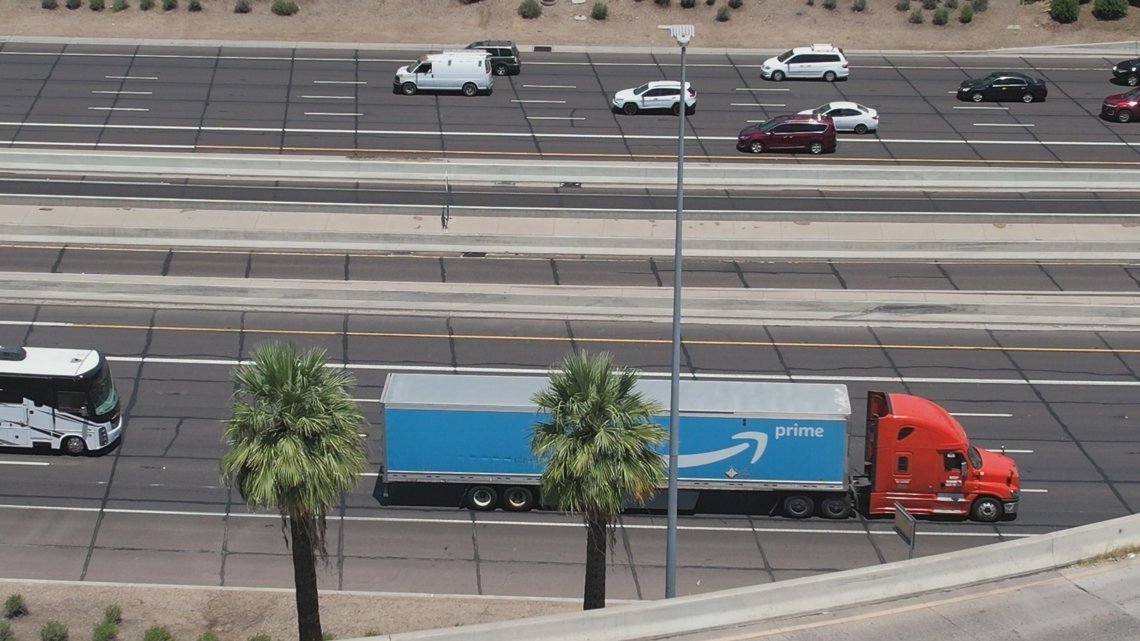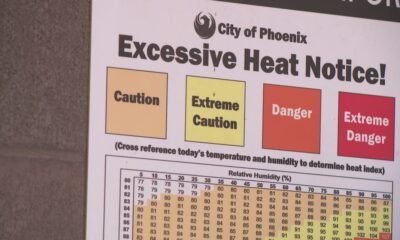arizona
Amazon’s Reckless Choices: Unqualified Carriers Spark Safety Lawsuits

Amazon’s safety assurances are being challenged as two Arizona residents file lawsuits after being involved in accidents with Amazon freight trucks.
Both plaintiffs claim that the process Amazon uses to vet freight carriers has resulted in unqualified drivers on the road. These allegations have surfaced against the backdrop of public reliance on Amazon for speed and convenience in deliveries.
Demetrius Ivey recalls the incident on December 12, 2022, as “the most terrifying” experience of his life. According to him, he was struck by a large tractor-trailer while turning on an I-10 exit ramp in Phoenix. Ivey’s lawsuit states that the truck, owned by Solid Road Express, cut the turn too sharply, hitting his vehicle’s driver’s side.
“I didn’t even know if I was okay,” Ivey told reporters after the crash. His attorneys, Ryan Skiver and Kellen Bradley, stress that while Amazon excels at quick deliveries, it compromises on safety due to its aggressive logistics demands.
The Relay program, which allows third-party carriers to book freight loads for Amazon, has come under scrutiny. Critics argue that the system enables potentially unsafe companies to operate under Amazon’s name. Amazon insists that it employs rigorous criteria to vet these third-party drivers, though some experts express concerns about the adequacy of these evaluations.
Alex Scott, an associate professor of supply chain management at the University of Tennessee, underscores that Amazon’s practices differ from those of its competitors. While traditional retailers contract directly with larger carriers known for higher safety standards, Amazon’s app invites smaller, often less experienced companies into its network.
The lawsuit notes that Solid Road Express was classified as a new entrant with the Department of Transportation, raising red flags about its competency. Amazon contends that in this instance, the crash resulted from unauthorized subcontracting, a violation of its policies. The company claims to have banned nearly 2,000 carriers for similar infractions.
Another victim, Shane Baer, filed his own lawsuit after being rear-ended by a truck while driving on the I-17 in Bumble Bee in October 2022. His legal team claims that the truck involved also carried an Amazon trailer and had a concerning safety record, with a high out-of-service rate.
For both Ivey and Baer, the aftermath has been challenging. Ivey has undergone months of physical therapy, while Baer faces multiple surgeries due to his injuries. Their legal representatives argue that Amazon needs to be more selective about carriers it allows to transport freight, stressing the importance of accountability and safety.
As the lawsuits unfold, they bring attention to broader issues of safety and responsibility within Amazon’s logistics network.


















